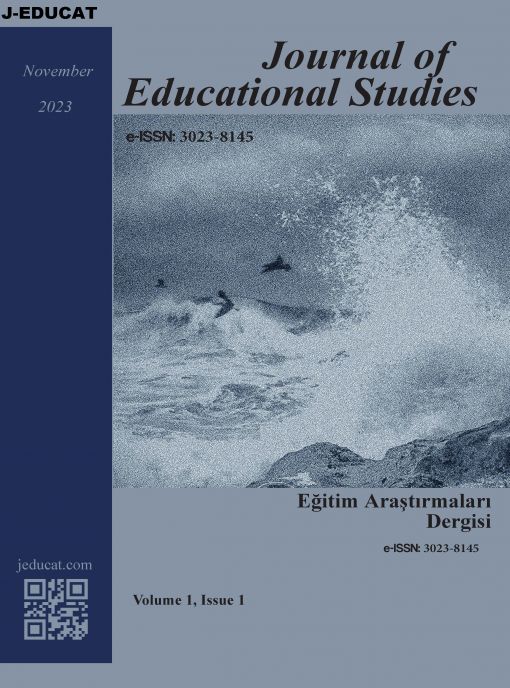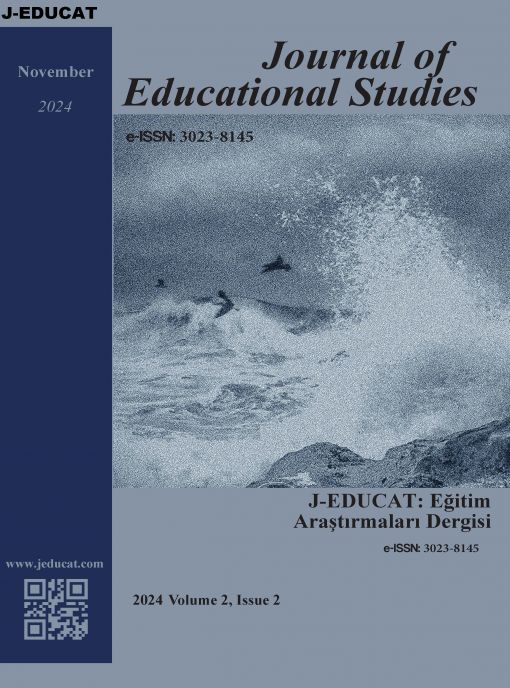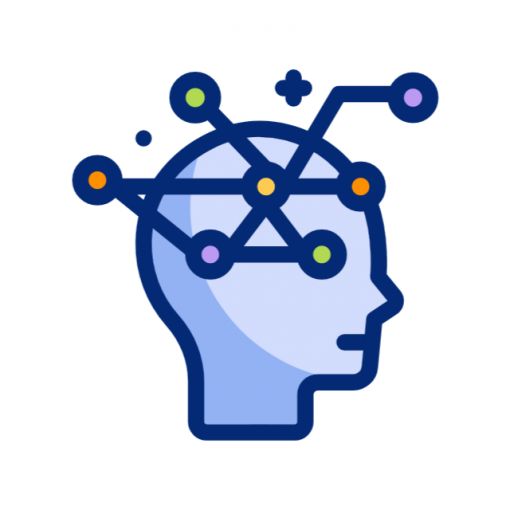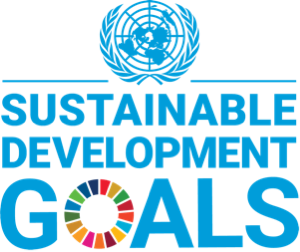
J-EDUCAT: Journal of Educational Studies
J-EDUCAT: Eğitim Araştırmaları Dergisi
e-ISSN:3023-8145
2023 VOLUME 1 ISSUE 1
Eğitim Araştırmaları Dergisi
ISSN: 3023-8145
2023, Volume 1, Issue 1 (Cilt 1, Sayı 1) 
Full IssueFrom the Editors /Editörlerden (Ön Sayfalar)
TABLE OF CONTENT
Research Paper -01
The Problem of Children Living on the Streets in the Context of Children's Rights
Çocuk Hakları Bağlamında Sokakta Yaşayan Çocuklar Sorunu
Assoc. Prof. Dr. Zeynep Eren & Fatma Çubuk
Abstract
The level of development of societies can be measured by the value they give to their children. Developed societies attach importance to raising their future generations as healthier, more prosperous, well-educated individuals who are beneficial to both themselves and society by going through a qualified education process. When the literature is examined, it is seen that, in addition to the diversity of classifications regarding the concept of street children, various measures have been taken at local and international levels in all countries and various models have been developed to solve this problem. Solving this problem by ensuring the welfare of street children is of great importance for both these children and society. The aim of this study is to explain the concept of street children and, first of all, to examine the legal status of the problem of children living on the streets in the context of the risk factors that create the problem, the measures that can be taken and children's rights legislation, and to develop solution suggestions. The research was carried out with the document review technique of the qualitative research method. According to the research findings, there are rights recognized for street children in the context of children's rights and comprehensive studies recommended by UNICEF around the world. However, since social policies are still not child-centered, there are problems in implementing the recognized rights.
Keywords: Street Child; Children Living on the Streets; Children's Rights.
Citation: Eren, Z., & Çubuk, F. (2023). The Problem of Children Living on the Streets in the Context of Children's Rights. Journal of educational studies (JEDUCAT), 1(1), 1-43. https://doi.org/10.5281/zenodo.11531291
Full Text ![]()
![]()
![]()
Research Paper -02
The Effect of Technology and Internet on Preschool Children's Developmental Areas
Teknoloji ve İnternetin Okul Öncesi Çocukların Gelişim Alanlarına Etkisi
Prof. Dr. Hakan Uşaklı
Abstract
21st-century kids are more tech-savvy than their predecessors. The impacts of technology on children's brains and their socio-emotional, cognitive, and physical development have received a lot of attention as a result of this rise in use. A lot of this research is still in its early stages, particularly the brain-based studies. Furthermore, studies usually find very weak correlations between child outcomes and technology use; it is unclear if technology causes these results, and tiny impact sizes raise questions about the implications for kids in the real world. Legislators in numerous nations have generally set stringent guidelines for kids' computer use despite these worries. This document outlines what has been persuasively demonstrated after reviewing a portion of the research on the impacts of technology on children's cognitive, physical, socioemotional, and brain development. In order to provide practical, evidence-based suggestions and to get a deeper understanding of how technology impacts children, it also highlights areas in which further high-quality research is required.
Keywords: Technology, Internet, Preschool Children, Developmental Area
Citation: Uşaklı, H. (2023). The Effect of Technology and Internet on Preschool Children's Developmental Areas. Journal of Educational Studies (JEDUCAT), 1(1), 44-55. https://doi.org/10.5281/zenodo.11531807
Full Text: ![]()
![]()
![]()
Research Paper- 03
Causes of Psychopathological Disorders in Students Studying Abroad
Xaricdə Təhsil Alan Tələbələrdə Psixopatoloji Pozuntularin Yaranma Səbəbləri
Dosent Dr. Sevinc Allahyarova & Dosent Dr. Aydan Səməndərova
Abstract
Adaptation of students studying abroad to the country they are studying in is a very long and difficult process. As a result of difficult adaptation, depression, anxiety and stress are found in students. The Finnish University in the network of European universities under the leadership of Vatsk; Andrews, Jennie, John University of London in the United Kingdom; Carroll, Ryan Among Students of Hermeneutics in America; Lepine has conducted research at an Australian university and others in various countries. The conducted researches make it possible to identify the mental health problems of foreign students studying in the country, to know the centers to which they can apply and to apply in time. In modern times, depression is noted with a high percentage among foreign students. It is a mental disorder characterized by low mood, accompanied by agitation, high fatigue, feelings of worthlessness, suicidal thoughts, decreased appetite, insomnia, psychomotor inhibition or agitation, as well as various somatic symptoms and complaints. In the medical context, depression differs from the usual meaning of the term - a state of hopelessness, depression and sadness - and requires medical attention.
Keywords: Student, Study abroad, Psychopathological disorders.
Citation: Allahyarova, S., & Səməndərova, A. (2023). Causes of Psychopathological Disorders in Students Studying Abroad. Journal of educational studies (JEDUCAT), 1(1), 56-67. https://doi.org/10.5281/zenodo.11533682
Full Text ![]()
![]()
![]()
Research Paper- 04
The Role of Montessori Education in Child Development
Montessori Təliminin Uşaq İnkişafında Rolu
Kazımova Çimnaz
Abstract
Preschool education has a great role in the development of children. Montessori school is one of the schools that has a great role in child development. The main purpose of the article is to explain the pedagogical features of Montessori education, the main principles of this education and its impact on child development. Maria Montessori, the founder of Montessori education, was an Italian physician, educator and innovator. The main features that distinguished her approach from other approaches were that the child learns by making mistakes independently and drawing conclusions from these mistakes, giving children freedom of choice, game-based learning, based on children's joint activity, and the teacher as a facilitator. Montessori noted that children have 4 stages of development. Each of these stages is described in detail in the article. Montessori training serves 3 main goals: motor training, affective training and language training. The principles of Montessori education are reflected in the article: respect for the child, absorbent mind, sensitive periods, comprehensive education, individualized learning, movement, freedom of choice, prepared learning environment, intrinsic motivation, and the principle of independence. Montessori education plays an important role in child development. Thus, this training forms independence and self-confidence in children, develops critical thinking skills in them, supports social skills and emotional development in children. In addition to developing creative thinking and imagination in children, it instills problem-solving skills and a love of learning at the same time. The Montessori method, which develops children's fine motor movements, also leads to language development in them.
Keywords: Montessori, Independent learning, Facilitator, Motor learning, Affective learning, Language learning.
Citation: Çimnaz, K. (2023). The Role of Montessori Education in Child Development. Journal of Educational Studies (JEDUCAT), 1(1), 69-80. https://doi.org/10.5281/zenodo.12638294
Research Paper- 05
Category of Number in Azerbaijani and Russian Languages
Категория числа в азербайджанском и русском языках
Senior Lecturer Zulfiya Agayeva
Abstract
The article analyzes the category of number in the Azerbaijani and Russian languages. In the Russian language, the category of number of nouns is closely related to the category of gender and case. In the Azerbaijani language, the category of number is an independent category, not related to the case system. The category of number of nouns in the Russian and Azerbaijani languages is expressed in two forms: singular and plural. The gap in correlation between the forms of both numbers in the Russian language suggests that the category of number is a lexical-grammatical category. And in the Azerbaijani language it is purely grammatical.
Keywords: Category of number, Azerbaijani category, Grammatical category
Citation: Agayeva, Z. (2023). Category of Number in Azerbaijani and Russian Languages. Journal of educational studies (JEDUCAT), 1(1), 81-87. https://doi.org/10.5281/zenodo.12638585
Full Text ![]()
![]()
![]()
ALL RESPONSIBILITY OF THE ARTICLES PUBLISHED IN THE JOURNAL BELONGS TO THE AUTHORS.
DERGİDE YAYIMLANAN YAZILARIN TÜM SORUMLULUĞU YAZARLARINA AİTTİR.





